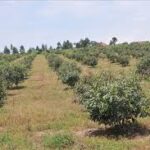Kenyan farmers and livestock breeders are increasingly interested in importing exotic goat breeds like the Saanen, a highly productive dairy breed known for its superior milk production. Importing these exotic goats from countries like South Africa can significantly improve the quality and output of goat farming businesses in Kenya. This guide explains how to import exotic goats, particularly Saanen goats, from South Africa to Kenya, covering the cost, logistics, and regulations.
Why Import Exotic Goats?
Exotic goats such as the Saanen offer several advantages over local breeds, including:
- Higher Milk Yield: Saanen goats are renowned for producing larger quantities of milk compared to indigenous Kenyan breeds. They can yield up to 3 to 4 liters of milk per day, making them ideal for commercial dairy operations.
- Genetic Improvement: Introducing exotic breeds helps improve local stock through cross-breeding, enhancing resistance to diseases, increasing productivity, and creating better-quality offspring.
- Increased Market Value: Exotic goats often command higher market prices due to their improved productivity, making them a profitable investment for farmers.
How to Import Exotic Goats from South Africa
- Identify a Reliable Supplier To import goats from South Africa, the first step is finding a reliable supplier. One such contact for importing Saanen milk goats is available at a cost of Shs 60,000 (Cost, Insurance & Freight – CIF) via Jomo Kenyatta International Airport (JKIA).
- Contact Details:
- Email: kemaxpsn@gmail.com
- Mobile: +254 737 222 201
- Contact Details:
- Understand the Costs The total price per Saanen goat is Shs 60,000, which includes:
- Cost of the Goat: The base price of purchasing the goat from the South African supplier.
- Insurance: Ensures coverage during transportation to mitigate the risk of damage or loss.
- Freight Charges: The shipping fee to transport the goats via air to JKIA.
- Obtain Necessary Permits You will need to obtain several permits from the Kenyan government to import livestock, including:
- Import Permit from the Directorate of Veterinary Services (DVS): This is required to legally import livestock into Kenya. It confirms that the goats meet the necessary health and safety standards.
- Animal Health Certificate: This is usually provided by the exporting country’s veterinary authority and certifies that the goats are healthy and free from diseases.
- Quarantine and Inspection Requirements: Upon arrival in Kenya, the goats may be quarantined for a specific period to ensure they do not introduce diseases into the local livestock population.
- Arrange for Shipping and Transportation Once all permits are in place, the goats can be shipped from South Africa to Kenya. The shipment will typically be by air via JKIA, ensuring quick and safe transport. You will need to arrange for the goats to be picked up and transported to your farm once they arrive in Nairobi.
- Clearing Customs Upon arrival at JKIA, the goats will need to go through customs clearance. This includes presenting all the necessary documentation such as the import permit, health certificate, and proof of insurance and payment of any applicable customs duties or taxes.
- Post-Importation Care After the goats arrive at your farm, it’s essential to ensure they acclimatize to their new environment. Exotic breeds like the Saanen may need special care, including:
- Dietary Adjustments: Make sure their diet meets their nutritional needs to maintain high milk production.
- Veterinary Care: Regular veterinary checks are essential to ensure the goats remain healthy and disease-free.
Additional Considerations
- Regulations and Compliance: Importing livestock involves strict regulations, so make sure you comply with all requirements from both South Africa and Kenya. It’s crucial to stay updated on any changes to livestock import laws.
- Goat Insurance: Consider insuring your goats against loss, disease, or death. This could be an additional cost, but it’s a worthwhile investment to protect your livestock.
Benefits of Importing Saanen Goats
Importing Saanen goats to Kenya can be a game-changer for farmers looking to diversify their livestock or boost dairy production. These goats are not only hardy and productive but also have the potential to significantly increase milk output, providing a steady income stream for farmers. Additionally, with the right breeding programs, Kenyan farmers can improve the quality of their local herds by cross-breeding with exotic breeds like the Saanen.
The process of importing exotic goats from South Africa to Kenya requires careful planning, obtaining the necessary permits, and ensuring proper care for the animals once they arrive. With the rising demand for high-quality dairy products, investing in breeds like the Saanen can yield significant returns for Kenyan farmers.
If you’re interested in getting started, be sure to contact the supplier, ensure all paperwork is in order, and be prepared for the logistical requirements of transporting livestock across borders. Importing exotic goats is a long-term investment that can elevate your farming business and increase profitability.





